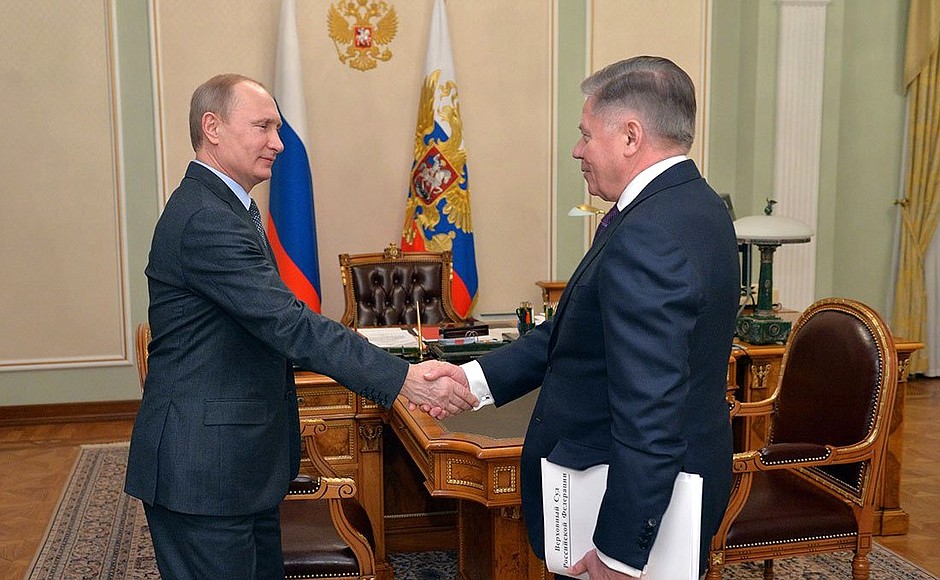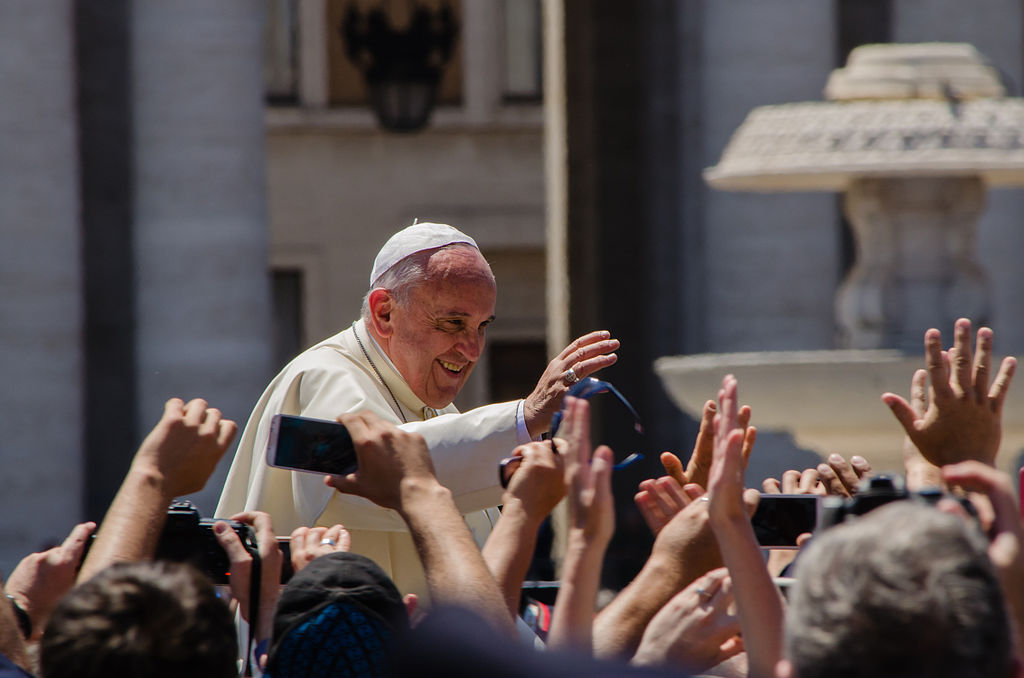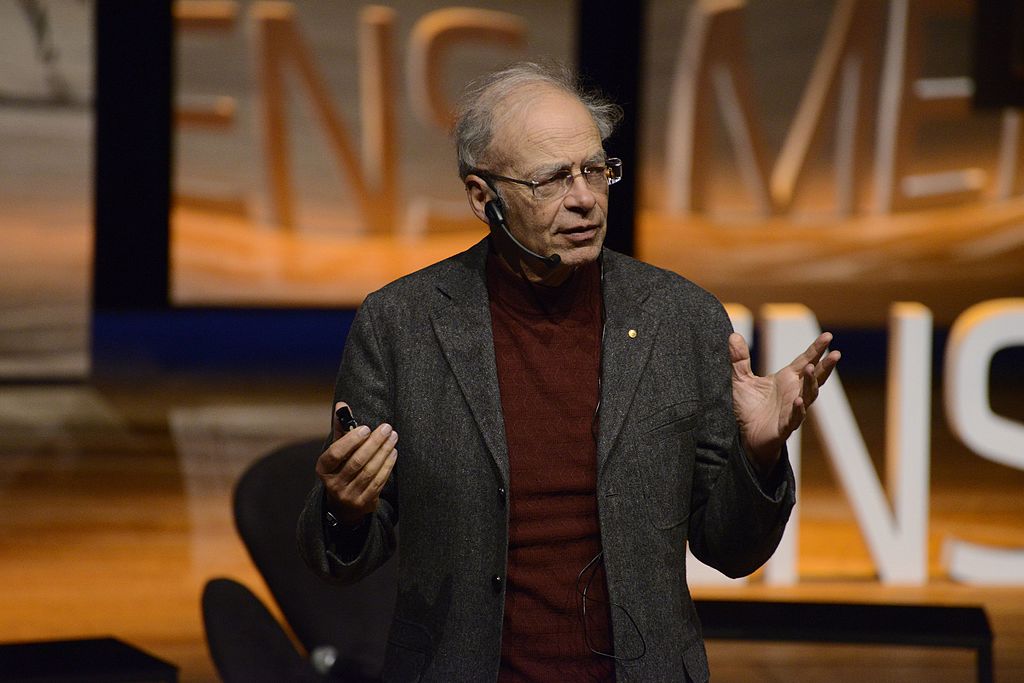In California, farm owners took a big gamble without knowing it: they voted for Donald Trump. Now, in lieu of receiving a cutback in taxes and regulations, they are at risk of losing their labor force. Thus, their profits might take a hit too, if there are not enough hands to gather the harvest. The danger President Trump poses to California farmers is that, contrary to farm owners’ predictions, he appears to be following through on his campaign promise to curb illegal immigration – and the amount of illegal immigrants in the United States – through mass deportations. The reason why California farmers’ labor force might end up in Trump’s crosshairs is because an estimated 70% of California farmworkers are residing and working in the country illegally. However, it is not just farm owners who would be affected by deportations, but also the local, state, and national economies, which have come to rely on the workers’ spending and manpower.
Fearless Girl, Charging Bull
Walking through New York City’s financial district, tourists and Wall Street professionals alike are sure to notice the standoff between and 11-foot-tall charging bull and the 4-foot-tall little girl, staring at him, unmoved by his size and power. As the conflict between the two statues heats up, Americans must decide who to defend.
Is Activism the Most Ethical Way to Fight Climate Change?
Mere days away from The People’s Climate March in Washington D.C., at least 100,000 people are estimated to march in the streets. One quick Google search of “Climate March D.C.” turns up dozens of articles on why marching next Saturday is important. However, in terms of social activism, and specifically climate change, is protesting a true form of advocacy? Much of the climate march this year is focused on “fighting back,” specifically against the Trump administration. But is turning the environmental movement into a direct political one ethical? And what is the danger in turning a movement into a large-scale march?
Continue reading “Is Activism the Most Ethical Way to Fight Climate Change?”
Jehovah’s Witnesses: An Extremist Group in Russia
In April 1951, 9,000 Jehovah’s Witnesses boarded the Trans-Siberian railway and were sent to the far eastern corner of Russia, where they would effectively disappear. In both Nazi Germany and Stalinist Russia, Jehovah’s Witnesses were accused of being unpatriotic. Adherents to this sect of Christianity don’t vote, don’t attend patriotic statements that glorify violence, and don’t participate in war. In Nazi Germany, they refused to profess “Heil Hitler”, and now under Vladimir Putin, they refuse to join the Russian Orthodox Church or publicly oppose Syrian rebels. On April 20, Russia’s supreme court labeled Jehovah’s Witnesses an extremist group, putting them on the same level as other militant extremist groups like Al-Qaeda and IS. Russia’s supreme court ordered that the Jehovah’s Witnesses’ Russian headquarters be closed, as well as their 395 local chapters.
Continue reading “Jehovah’s Witnesses: An Extremist Group in Russia”
Social Issues as Product Promotion: Exploitation or Artistic License?
On April 4, Pepsi recalled an ad less than 24 hours after its release on account of ridicule for its insensitivity towards social justice movements. In the ad, Kendall Jenner is in a photoshoot when she notices a protest occurring outside. Prompted by a head nod from one of the protesters, she joins the crowd and eventually hands the police officers on duty a Pepsi; outbursts of applause and cheering come from the crowd when the officer accepts the Pepsi.
Continue reading “Social Issues as Product Promotion: Exploitation or Artistic License?”
In France’s National Elections, Historique pour l’europe
On Sunday, French citizens went to the polls and advanced Emmanuel Macron and Marine Le Pen to the next stage of their presidential election process, eschewing the traditional, mainstream parties that have long dominated French politics. For the first time in French history since the establishment of the Fifth Republic, neither a candidate from an established center left party nor the primary center right party advanced to the final round of the election. It is only the third time a candidate not representing one of those parties has made it to the second round.
The French public’s rejection of the historical mainstream parties is part of a larger global trend of rejecting so-called political insiders and electing far-right candidates, seen in the U.S.’s election of President Donald Trump in 2016 and the Polish election of the Law and Justice Party in 2015. Some reporters called this French election a referendum on Europe, as the European community reels from the blow of the Brexit vote in 2016.
Continue reading “In France’s National Elections, Historique pour l’europe”
Moral Obligations and Tinfoil Hats: The Ethics of Conspiracy
On, March 4th, 2017, Donald Trump claimed, without evidence, that Barack Obama wiretapped the phones at Trump Tower during the presidential election. This is not the first baseless claim that Trump has made about the former president. As the American population is well aware, Trump was one of the most vocal participants in the birther movement. Even after Obama made his birth certificate public, proving that he was born in Hawaii in 1961, Trump said, in an interview with ABC News, ”Was it a birth certificate? You tell me. Some people say that was not his birth certificate. Maybe it was, maybe it wasn’t. I’m saying I don’t know. Nobody knows.”
Continue reading “Moral Obligations and Tinfoil Hats: The Ethics of Conspiracy”
Easter and the Ethics of the Resurrection
Easter was recently celebrated by Christians all over the world. 2017 was one of those rare years when the Julian and Gregorian calendars coincide in their timing of Easter; therefore, the Eastern and Western Churches celebrated Jesus’ resurrection on the same day.
Yet, a recent BBC poll revealed that a quarter of British Christians do not believe in the resurrection. We do not have poll results for the rest of the world. The United Kingdom is among the most secularized countries in the world, so the results are probably not representative of other countries. Yet, the modernizing and secularizing tendency seems to be spreading in the rest of the world, and it would be safe to assume that the percentage of people that do not believe in Jesus’ resurrection is on the rise.
Continue reading “Easter and the Ethics of the Resurrection”
The Fight to Raise Indiana’s Cigarette Tax
For the second year in a row, Indiana legislators have introduced and advanced a bill that aims to raise the consumer taxes on cigarettes. In the nation, Indiana ranks 37th for the price of a pack of cigarettes, with the tax on a pack of cigarettes at less than $1. Though during the 2016 General Assembly a bill that targeted cigarettes and gasoline did not pass, H.B. 1578 is on track to make it to the governor’s table. Not only does H.B. 1578 raise cigarette taxes by $1.50, but it also aims to raise the minimum smoking age from 18 to 21. Though nobody advocates for the harmful side effects that cigarettes cause to personal and community health, what are the ethics of increasing taxes on a consumer product that is used more heavily by the poor?
Continue reading “The Fight to Raise Indiana’s Cigarette Tax”
Just War Theory and the Aims of Trump’s Airstrikes
The guiding concern of just war theory is that it is wrong to harm people, therefore it is wrong to harm people en masse, as we do in war. Thus, just war theory stems from the observation that aggression of all kinds requires justification, and the theory attempts to lay out the justification for acts of war. War is aggressive, and it harms and kills individuals as well as damages nations, and therefore we should take seriously the moral weight of the obligations to avoid it. The two principle realms that just war theory addresses are jus ad bellum (justified principles for entering war) and jus in bello (justified principles of conduct within war).
Continue reading “Just War Theory and the Aims of Trump’s Airstrikes”
What the United Incident Says About the Airline Industry
A video of a man being dragged off an overbooked United Airlines flight appeared on social media last weekend, sparking outrage across the country and even the world. In the video, a man is shown being forcibly removed from the aircraft after being randomly selected to give up his seat for United Airlines crew members. Although United has since changed their policies, the fact that the incident happened at all raises concerns about airline procedures. In an industry that serves thousands of people per day, the context of the incident remains important to understand.
Continue reading “What the United Incident Says About the Airline Industry”
Are Superhero Films Truly Diversifying?
In the coming months, superhero fans of different races and genders are anxious to see new heroes from Marvel and DC that better represent diversity. The wait for diverse superheroes has been long, with the movie production world still dominated by white male production teams cranking out movies with white male leads. For example, out of 22 Marvel superheroes, only 7 are people of color. Out of 10 DC heroes, only 4 are people of color. None of these diverse heroes are playing a primary role, and many lack an authentic and detailed backstory.
Animal Abuse on Spring Break: The Case of Total Frat Move
Popular blog Total Frat Move has been in hot water recently in response to numerous animal abuses posted on their main Instagram account (@totalfratmove), along with an associated account dedicated to spring break (@tfmspringbreak). Both accounts follow drunken college antics, with @tfmspringbreak focusing especially on beer luging (pouring beer down a narrow channel, such as one made of ice) and shotgunning (puncturing a can and opening the top to consume liquid more quickly). Controversy comes into play as a significant portion of the photos and videos on this account feature animals contained within alcoholic drinks or being used as a drinking vessel.
Continue reading “Animal Abuse on Spring Break: The Case of Total Frat Move”
What Happened at Ramjas: Tyranny of the Nation
The censorship, riots, and public outcry surrounding the events at Ramjas College in Delhi, India, sparked public debate about the future of India as a democracy. What happened at Ramjas – as explained in the first article of this series, “What Happened at Ramjas : A Voiceless India“ – was a clear violation of Indians’ right to free speech under the name of nationalism. Identifying the philosophical structures used to justify actions on both sides will help us gain a better understanding of a pressing issue facing modern day India.
Continue reading “What Happened at Ramjas: Tyranny of the Nation”
Mike Pence’s Marital Practices: Workplace Accommodation or Discrimination?
On March 28th, a Washington Post profile on Mike Pence’s wife, Karen Pence, emphasized the closeness in their marriage by reiterating a controversial policy of theirs: Mike Pence does not eat alone with any woman besides Karen, nor does he attend any event that has alcohol present without her. While some laud this commitment to honoring and protecting his marriage, others have voiced concerns about the practicality of following such a rule and fairly performing the roles of his professional position.
Continue reading “Mike Pence’s Marital Practices: Workplace Accommodation or Discrimination?”
Peter Singer and the Ethics of Effective Altruism
In the first part of this two-part series, we explored the views of Princeton bioethicist Peter Singer and whether they count as “eugenics.” Although his possibly eugenicist views are what drew protestors to Singer’s recent talk at the University of Victoria, Singer wasn’t there to discuss bioethics. Instead, he had been invited by the Effective Altruism club, and the event included a screening of Singer’s 2013 TED talk on Effective Altruism.
Continue reading “Peter Singer and the Ethics of Effective Altruism”
The Ethics of an Atheist Pope
With two deeply conservative predecessors (John Paul II and Benedict XVI), Pope Francis has raised a lot of eyebrows over the years. He has not made any significant reform (unlike, say, John XXIII), but his populist style has definitely struck a chord of sympathy amongst many Catholics. John Paul II was a populist as well, but he was closer to the original version of populism, gathering huge crowds all over the world. Francis, on the other hand, is not so apt at crowd gathering, but he is apt at appearing to be in touch with common folks. He has repeatedly washed people’s feet (in remembrance of Jesus’ humbleness), and he is very warm to journalists and visitors. Unlike Benedict XVI, he does not seem to be too interested in pompous rituals or luxurious protocols. We may never know whether these gestures are genuine, or a calculated political image; they are most likely something in between.
Finding Consciousness in the Humble Honeybee
Though previously a point of contention with artificial intelligence and apes, consciousness and awareness are now possibly exhibited by insects — most specifically bumblebees and honeybees. In 2012 a group of scientists released the Cambridge Declaration on Consciousness. They had been reevaluating the “conscious experience,” and concluded that “humans are not unique in possessing the neurological substrates that generate consciousness.” This statement revolutionizes the idea that consciousness is reserved for higher mammals.
Continue reading “Finding Consciousness in the Humble Honeybee”
Should We Avoid or Engage Moral Dilemmas?
It is common for parents to teach their children to avoid moral danger. Parental advice includes avoiding certain peer groups, adhering to a curfew, and ensuring that responsible adult supervision is always present. Parents tend to think that these kinds of policies make it more likely that their children won’t encounter situations in which they might make bad decisions.
Continue reading “Should We Avoid or Engage Moral Dilemmas?”
What Happened at Ramjas : A Voiceless India
On February 22nd of this year, India’s democratic foundations were shaken once again. The promise of individual rights to its people was broken as its academic community was silenced.
Continue reading “What Happened at Ramjas : A Voiceless India”
Moral Philosophy Doesn’t Need a License to Cause Harm
Philosophers Peter Singer and Jeff McMahan recently wrote a very controversial op-ed in The Stone (a blog published by The New York Times) arguing that Anna Stubblefield may have been unjustly treated in her sexual assault conviction. Stubblefield engaged in multiple sexual acts with a person who was severely cognitively impaired. Continue reading “Moral Philosophy Doesn’t Need a License to Cause Harm”
Respecting the Dead: The Case of Charles Byrne, the Irish Giant
Charles Byrne died quite young, at the age of 22, and quite tall, at approximately seven feet, eight inches. This is still tall for today, but must have been more impressive during Mr. Byrne’s short life in the late 18th century. According to an Ohio State University researcher, the average height for men in Northern Europe in the 17th and 18th centuries was only about five feet, five inches. Today, the average height for men in Northern Ireland has been calculated to be about five feet, 10 inches.
Continue reading “Respecting the Dead: The Case of Charles Byrne, the Irish Giant”





















